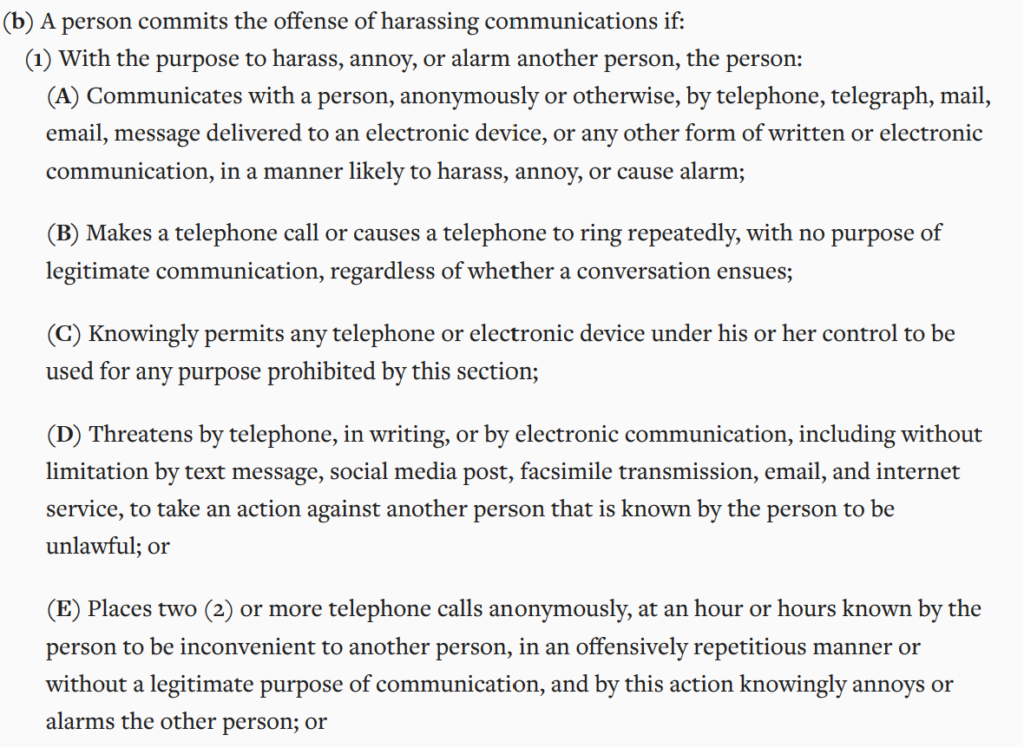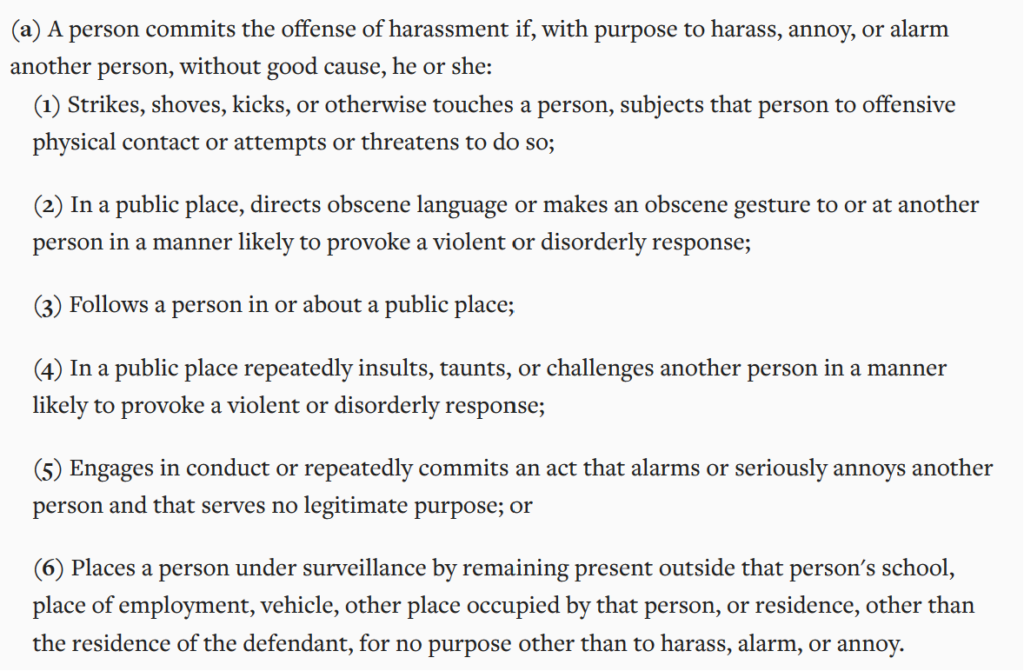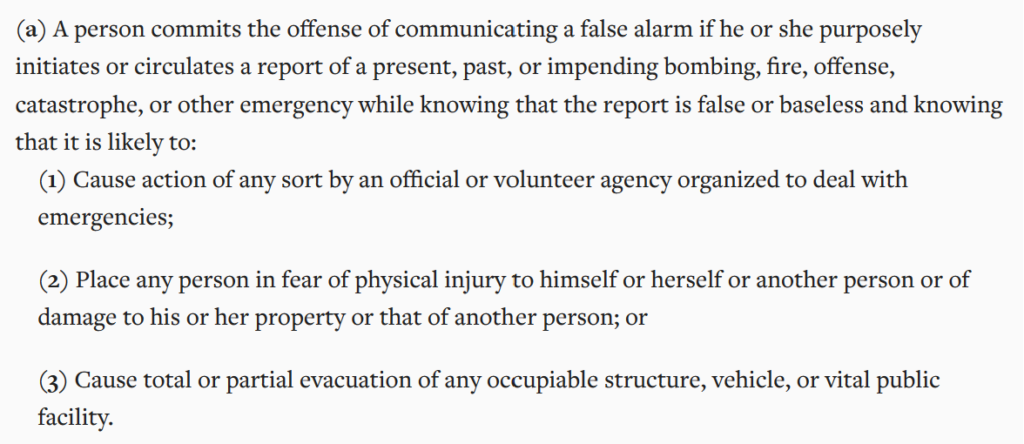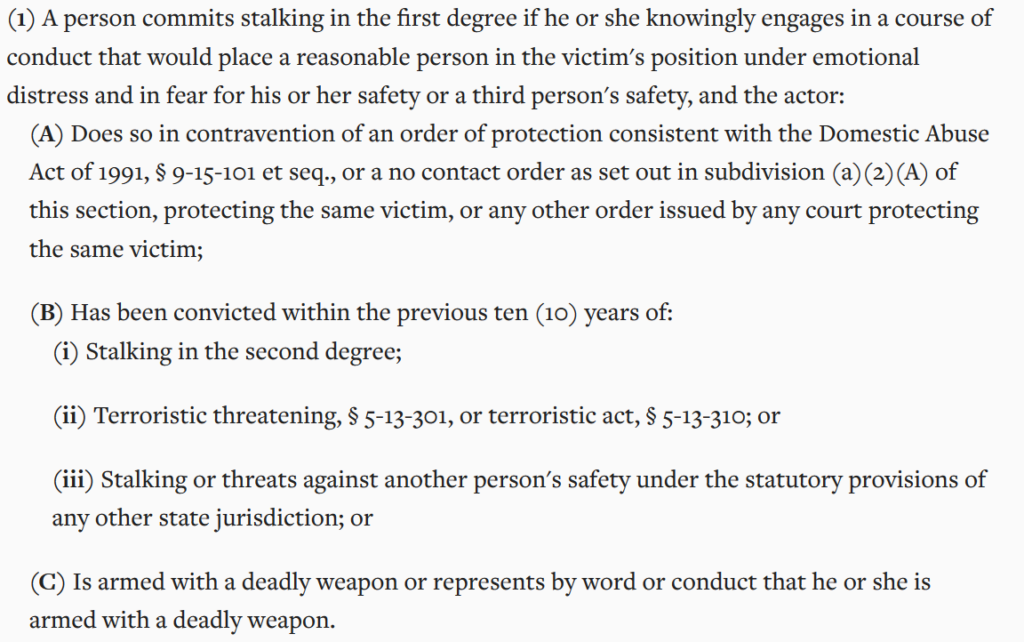Is Doxxing Illegal In Arkansas?
Laura Martisiute
Reading time: 6 minutes

Table of Contents
If you’re a resident of Arkansas and have concerns about your information being shared online without your permission, you may be wondering: Is doxxing illegal in Arkansas?
The short answer is yes, but only under specific circumstances. With that said, there are other crimes that encompass doxxing-related activities you should be aware of.
Is Doxxing Illegal In Arkansas?
Doxxing, or the act of posting someone else’s personal data without their authorization, is illegal in Arkansas, but only in the case of minors and only on social media (Arkansas Code § 5-27-610).

In those situations, it’s a Class A misdemeanor, with a maximum fine of $2,500 and the potential for up to a year in jail.
The charge and associated penalties escalate depending on the outcome of the doxxing.
If the minor experiences a monetary loss of between $500 and $10,000 due to being doxxed, it becomes a Class D felony punishable by up to six years imprisonment and/or a fine of up to $10,000.
Should the minor experience physical injury as a result of being doxxed, or if they lose between $10,000 and $1,000,000, the perpetrator can be charged with a Class C felony, which comes with a penalty of 3-10 years in prison and/or a fine of up to $10,000.
If the doxxed minor dies or experiences more than $1,000,000 in financial losses, the offender can be charged with a Class B felony amounting to between 5 to 20 years in prison and/or a fine of up to $15,000.
Doxxing-Relates Activities That Are Illegal In Arkansas
While minors are the only ones who enjoy legal protection against doxxing in Colorado, there are doxxing-related activities that are illegal in the state regardless of who the victim is.
These include harassing communications, harassment, cyberbullying, communicating a false alarm, and stalking.
Harassing communications
Communicating with someone intending to “harass, annoy, or alarm” them is illegal in Arkansas (Ark. Code § 5-71-209).
In this case, communications can come via online sources, including emails and direct messages, as well as by phone or text.

Those guilty of sending harassing communications in Arkansas can be charged with a Class A misdemeanor entailing up to one year in jail and/or a fine of up to $2,500.
Harassment
The definition of harassment (Ark. Code § 5-71-208) in Arkansas includes the behaviors of following someone, deliberately provoking them into a violent response, and surveilling someone outside their home or workplace, all of which can be possible following a doxxing incident.

In Arkansas, harassment is considered a Class A misdemeanor in the state, amounting to up to a year in jail and/or a fine of up to $2,500.
Cyberbullying
Cyberbullying (Ark. Code § 5-71-217) involves sending harassing communications with an intent to “frighten, coerce, intimidate, threaten, abuse, or harass” the victim in a way that serves to further “severe, repeated, or hostile behavior” against them.

It’s a Class B misdemeanor that comes with a fine of up to $1,000 and/or 90 days in jail unless the victim is a school employee, in which case it’s a Class A misdemeanor with an ensuing penalty of up to a year in jail and/or a fine of up to $2,500.
Communicating a false alarm
The act of swatting or making a false report to law enforcement to summon an emergency response against an unsuspecting victim is often the byproduct of doxxing.
In Arkansas, this offense comes under “communicating a false alarm” (Ark. Code § 5-71-210).

In most cases, communicating a false alarm is a Class A misdemeanor in Arkansas, punishable by up to one year in jail and/or a fine of up to $2,500.
If property is damaged as a result of the call, or if it’s a bomb threat directed at an educational institution, the charge becomes a Class D felony with up to six years in prison and/or a $10,000 fine.
If someone is injured as a result of the call, it’s a Class C felony, punishable by 3 to 10 years in prison and/or a fine of up to $10,000.
Stalking
In Arkansas, engaging in conduct that puts someone (or someone close to them) in fear for their safety is considered stalking (Ark. Code § 5-71-229) if it is also paired with a deadly weapon (or if a few other potential qualifying circumstances are met).

In Arkansas, stalking is a Class B felony, meaning perpetrators can face 5-20 years in prison and/or a fine of up to $15,000.
Is Doxxing Illegal at the Federal Level?
It is not illegal to dox someone at the federal level in the US, although, just like in Arkansas, there are doxxing-related activities that can be charged at the federal level.
A growing number of states (like California, Arizona, and Illinois) have made, or are in the process of making, doxxing illegal.
However, while there may be legal protection against some behaviors at the state and federal levels, legal remedies are the last course of action after the damage has already been done.
Because of this, it’s important for people to take their online safety into their own hands by proactively shrinking their online footprint and making themselves as undoxxable as possible.
How to Protect Yourself Against Doxxing In Arkansas (And Elsewhere)
To reduce your risks of being doxxed, your first step should be to dox yourself (find out how in our guide to self-doxxing using this list of doxxing tools). Doing so will show you exactly where your data privacy vulnerabilities are and give you a clear path forward on how you can minimize them.
For most people, becoming undoxxable will involve taking at least some of the following steps:
- Opting out of data brokers, which are companies that collect information about people and consolidate it into profiles that are sold to anyone willing to pay a minimal fee. You can remove yourself from data brokers, but you must submit an opt-out request for each broker individually and more than once (your profile will be reactivated once brokers find more data about you online). Alternatively, you can subscribe to a data broker removal service such as DeleteMe to handle data broker opt-outs for you.
- Changing your social media privacy settings from public to private to limit who can see your posts and hide your biographical details from strangers. For example, here’s how someone could doxx you on Instagram.
- Requesting the removal of your data from third-party websites and Google services.
- Changing usernames between profiles, and only using unique usernames for new accounts moving forward. Otherwise, you risk someone being able to doxx you by following you across the internet.
- Limiting how much you share online.
To learn more about reducing our online footprint, read our guide on how to prevent doxxing.
Our privacy advisors:
- Continuously find and remove your sensitive data online
- Stop companies from selling your data – all year long
- Have removed 35M+ records
of personal data from the web
Save 10% on any individual and
family privacy plan
with code: BLOG10
news?
Don’t have the time?
DeleteMe is our premium privacy service that removes you from more than 750 data brokers like Whitepages, Spokeo, BeenVerified, plus many more.
Save 10% on DeleteMe when you use the code BLOG10.

















